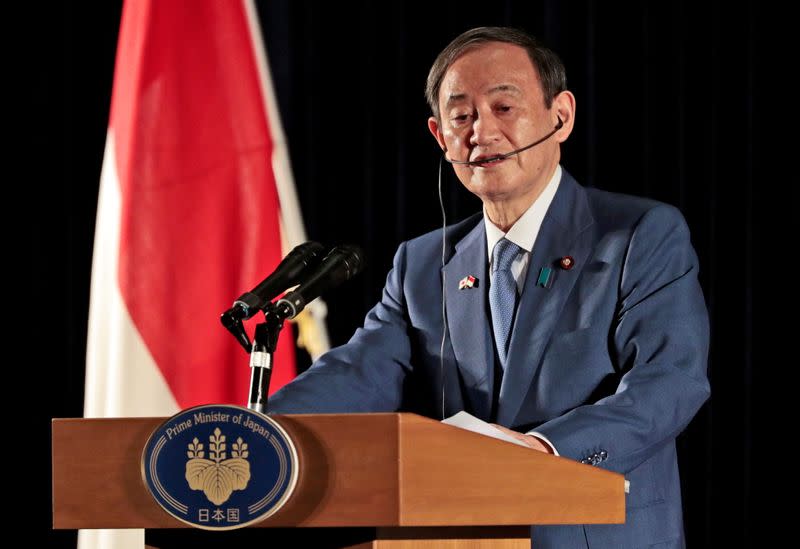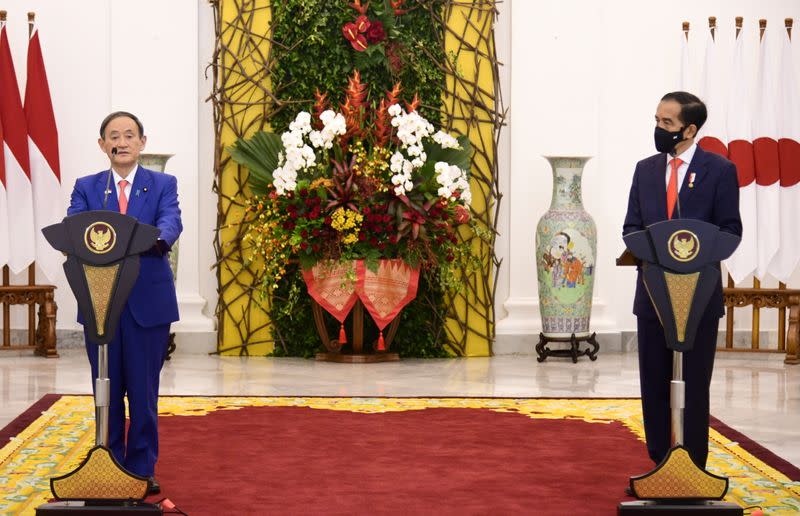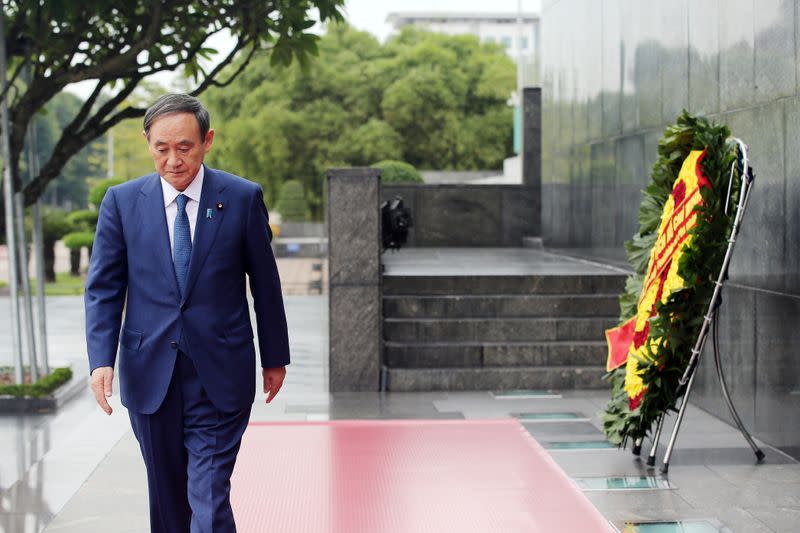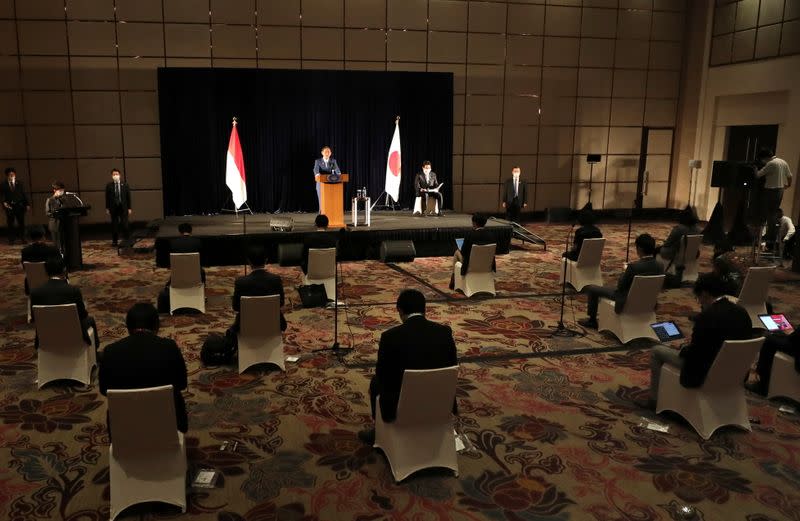Japan's Suga opposes actions that boost tension in South China Sea
By Kiyoshi Takenaka
JAKARTA (Reuters) - Japan opposes any actions that escalate tension in the East and South China Seas, Prime Minister Yoshihide Suga said on Wednesday, but added that Tokyo was not aiming at an "Asian NATO" to contain any specific country.
Suga was wrapping up a four-day trip to Vietnam and Indonesia, his first overseas since taking office last month, as part of Japan's efforts to bolster ties with key Southeast Asian nations amid concerns about China's growing assertiveness there.
"Japan is opposed to any actions that escalate tensions in the South China Sea," Suga told a news conference in the Indonesian capital.
"Let me stress anew the importance of all the countries concerning the South China Sea issues not resorting to force or coercion, but working toward peaceful resolutions of the disputes based on international law."
The trip follows this month's meeting in Tokyo of the “Quad”, an informal grouping of India, Australia, Japan and the United States that Washington sees as a bulwark against China’s growing regional influence.
China has denounced the grouping of the four democracies as a "mini-NATO" aimed at containing its development.
"Our response in the South China Sea is not aimed at any one country," Suga said, when asked if Japan wanted to create an Asian version of the North Atlantic Treaty Organization (NATO).
Suga must balance Japan’s deep economic ties with China against security concerns, including Beijing’s growing push to assert claims over disputed East China Sea isles.
Some in his ruling party want to see a harder line, after ties warmed under his predecessor, Shinzo Abe.
"Japan is determined to defend its territory, territorial waters and air space," Suga said, adding that Japan also opposed actions that raised tension in the East China Sea.
Several members of the Association of Southeast Asian Nations (ASEAN) have territorial disputes with China in the vital South China Sea, but are wary of alienating the group's major economic partner and getting entangled in an intense confrontation between Washington and Beijing.
But some welcome Japan's greater engagement in the region.
Suga agreed with President Joko Widodo on Tuesday to speed talks on the export of Japanese defence gear and technology to Indonesia and have their defence and foreign ministers meet soon.
A day earlier, the Japanese leader and Vietnamese counterpart Nguyen Xuan Phuc also agreed in principle on a military equipment and technology export pact.
(This story changes day of the week to Wednesday, not Monday in paragraph 1.)
(Reporting by Kiyoshi Takenaka and ELaine Lies in Tokyo, Adi Kurniawan and Heru Asprihanto in Jakarta; writing by Linda Sieg in Tokyo,; Editing by Clarence Fernandez and Raju Gopalakrishnan)






